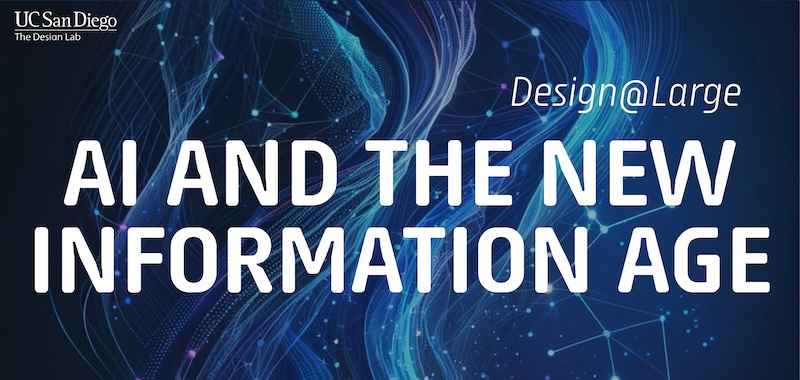Apr 10, 2024–Apr 10, 2024 from 4:00pm–5:00pm
Design@Large: “AI For Good” Isn’t Good Enough: A Call for Human-Centered AI

About “AI For Good” Isn’t Good Enough: A Call for Human-Centered AI
AI for Good initiatives recognizes the potential impacts of AI systems on humans and societies. However, simply recognizing these impacts is not enough. To be truly Human-Centered, AI development must be user-centered, community-centered, and societally-centered. User-centered design integrates techniques that consider the needs and abilities of end users, while also improving designs through iterative user testing. Community-centered design engages communities in the early stages of design through participatory techniques. Societally-centered design forecasts and mediates potential impacts on a societal level throughout a project. Successful Human-Centered AI requires the early engagement of multidisciplinary teams beyond technologists, including experts in design, the social sciences and humanities, and domains of interest such as medicine or law, as well as community members. In this talk I will elaborate on my argument for an authentic Human-Centered AI.
About the Speaker
James Landay is a Professor of Computer Science and the Anand Rajaraman and Venky
Harinarayan Professor in the School of Engineering at Stanford University. He co-founded and
is Co-Director of the Stanford Institute for Human-Centered Artificial Intelligence (HAI). Landay previously was a tenured faculty member at Cornell Tech, the University of Washington, and UC Berkeley. He was also Director of Intel Labs Seattle and co-founder of NetRaker. While on sabbatical at Microsoft Research Asia in Beijing, he taught for one semester at Tsinghua University. Landay received his BS in EECS from UC Berkeley, and MS and PhD in Computer Science from Carnegie Mellon University. He is a member of the ACM SIGCHI Academy, an ACM Fellow, and was awarded the ACM SIGCHI Lifetime Research Award. He served on the NSF CISE Advisory Committee for six years.
About AI and the New Information Age
In 2019, GPT-2 could not reliably count to ten. Only four years later, deep learning systems can write software, generate photorealistic scenes on demand, advise on intellectual topics, and combine language and image processing to steer robots. As AI developers scale these systems, unforeseen abilities and behaviors emerge spontaneously without explicit programming. Progress in AI has been swift and, to many, surprising.
— Managing AI Risks in an Era of Rapid Progress, Bengio, Hinton, et al.
Along with rapid advancements in AI research, there are increasing concerns. Many concerns stem from a growing disconnect between the technology-centric approach to the creation of AI technologies and their inextricable embedding into complex personal, social, and cultural contexts. The theme of the Spring 2024 Design@Large is AI and the New Information Age. A primary focus is designing information spaces, places that foster thinking, in this new information age.
Date and Time
Apr 10, 2024–Apr 10, 2024
from 4:00pm–5:00pm
Location
Design & Innovation Building, Room 208
Event Registration
Registration for this event is required
by .
Visit the registration page for details.
Event Fee
Free
Contact
Design Lab Operations • dlab-ops@ucsd.edu
Audience
Faculty, Staff, Students, The General Public, Alumni, Parents and Family